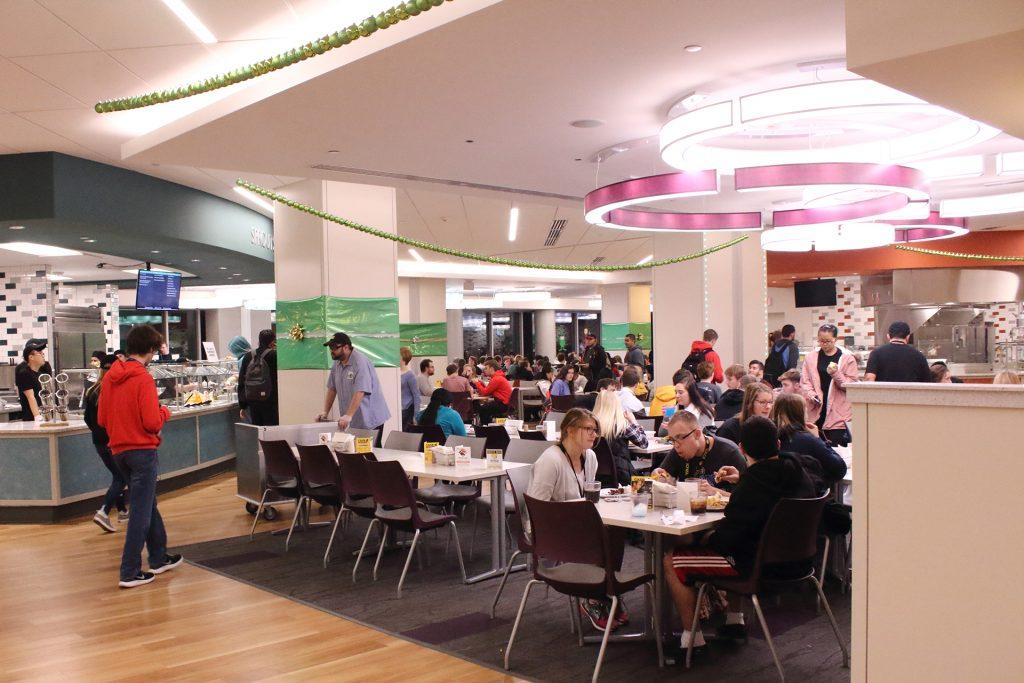Hawks help Hawks.
That phrase rang true after more than 4,000 meals were donated to the new Hawkeye Meal Share program, which aims to help students who are food-insecure.
“We have 4,157 meals that have been donated by 875 donors,” said Nikki Hodous, the UI Dean of Students assistant director of student care & outreach. “We were all blown away. Even when we first started getting the meals in, we would look every few hours and just be amazed at how the number was increasing.”
The new program allows University of Iowa students to donate their unused guest-meal swipes to undergraduate, graduate, or professional students on campus who are food-insecure.
Related: New program combats food insecurity with donated meal swipes
The program officially launched at the end of last semester, when it received the bulk of its donations. Students are able to begin using the donated meal swipes this semester.
“This is a great resource because it will fix some of those short-term problems that students who are food insecure face, and they’ll be able to then learn about other resources that can help them eliminate the problem in the long term,” UI Student Government President Jacob Simpson said.
Students experiencing food insecurity can request assistance through the meal-share program by filling out a short form on the Student Care and Assistance website. From there, their needs will be identified and meals will be loaded on to the students’ cards that they can then use to swipe in a dining hall.
Student Care and Assistance will also use the form filled out by students to connect them with additional campus resources to help with food insecurity, including the Food Pantry at Iowa and the Financial Aid Office.
Related: Pantry reaches out in fighting hunger
“We look forward to having this be another way to combat food insecurity on campus and provide students with another opportunity to have access to nutritious food options,” Food Pantry Executive Director Carissa Bailey said.
Hodous said she looks forward to seeing the program meet a crucial need on campus.
“I look forward to the fact that we are going to be able to serve students in a new way and in such a crucial way,” she said. “When we talk about food insecurity, we talk about basic needs like food, safety, and shelter, and to think about anybody going without or having to worry about something so basic is troubling. [With this program], we are going to be able to address that because our students care.”
The next step for the program is to advertise the resource and reach out to those who are food-insecure.
“The next steps will be getting the information out there so that people know how to continue to donate to the program and how to self-identify into the program,” Hodous said. “I think sometimes, that’s a challenge — that if you don’t know the resource is there, you don’t know to ask for the resource.”
Simpson attributes the program’s successful start to student support.
“I think this is a shining example of what student support can look like. It is very targeted, we know there is a need on campus, and then we turn to the community to create a solution,” he said. “I’m just really appreciative of everyone who donated and also appreciative of the ideas that continue to be shared about how we can address food insecurity on campus.”



